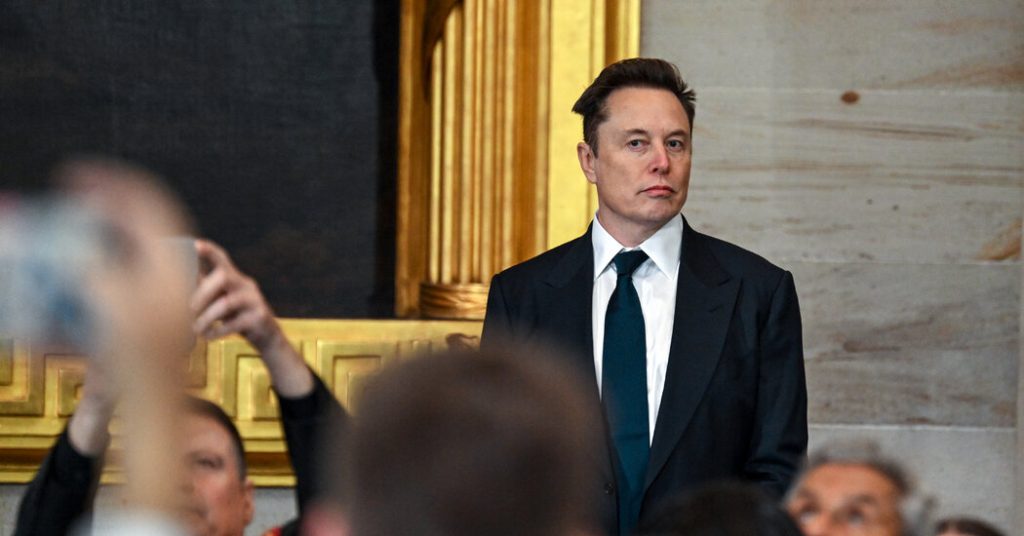Summarize this content to 2000 words in 6 paragraphs A group of investors led by Elon Musk has made a $97.4 billion bid to buy the assets of the nonprofit that controls OpenAI, according to two people familiar with the bid, escalating a yearslong, deeply personal tussle for the future of artificial intelligence between Mr. Musk and OpenAI’s chief executive, Sam Altman.The consortium includes Vy Capital and Xai, Mr. Musk’s artificial intelligence company, as well as the Hollywood power broker Ari Emanuel and other investors, said the people, who spoke on the condition of anonymity because the discussions are ongoing.The Wall Street Journal earlier reported news of the offer.The bid for OpenAI is Mr. Musk’s latest and perhaps most audacious attack on an organization that he helped create almost 10 years ago. It faces long odds: OpenAI’s board of directors is closely allied with Mr. Altman, and the chief executive quickly mocked Mr. Musk’s bid.“No thank you but we will buy twitter for $9.74 billion if you want,” Mr. Altman said on X, referring to the old name for Mr. Musk’s social media platform.“Swindler,” Mr. Musk replied.OpenAI has not yet seen the bid, according to a person familiar with OpenAI’s potential response. Mr. Musk’s unsolicited offer could complicate OpenAI’s attempt to complete a $40 billion fund-raising deal that would nearly double the high-profile company’s valuation from just four months ago.The new fund-raising round, led by the Japanese conglomerate SoftBank, values OpenAI at $300 billion, according to three people with knowledge of the deal who spoke on the condition of anonymity. The deal would make OpenAI one of the most valuable private companies in the world, along with Mr. Musk’s rocket company, SpaceX, and ByteDance, the maker of TikTok.SoftBank would invest up to $40 billion in OpenAI, with other investors providing about a quarter of the total funds, the people said. (The New York Times has sued OpenAI and its partner, Microsoft, claiming copyright infringement of news content related to A.I. systems. The two companies have denied the suit’s claims.)Mr. Musk’s bid could slow a company transition that Mr. Altman and other OpenAI executives have been working on for more than a year.Mr. Musk, Mr. Altman and several other entrepreneurs and researchers founded OpenAI as a nonprofit in late 2015, saying they wanted to freely share their technologies with the world. When Mr. Musk left the organization three years later after a battle for control, Mr. Altman attached OpenAI to a for-profit company so he could raise the enormous amounts of money needed to build A.I. technologies.But the nonprofit board, in an unusual arrangement, continued to control OpenAI. In late 2023, the board suddenly fired Mr. Altman, saying it no longer trusted him to build A.I. for the benefit of humanity — one of the original principles of the nonprofit. But the ouster lasted only five days.After he returned, Mr. Altman and his colleagues began exploring ways of severing the nonprofit’s control of the company. He also began to stack OpenAI’s board with his allies, offering a bulwark against other efforts to wrest control from him.OpenAI’s structure is remarkably complex — and Mr. Musk’s bid shows that he understands its weak points. In order to separate from the nonprofit board, Mr. Altman and his colleagues must compensate it: OpenAI might pay the nonprofit a one-time fee, for instance, or give it a minority stake in the company.While OpenAI has more than 2,000 employees, the nonprofit that controls it has only two employees and $22 million in cash and other assets. The reason Mr. Musk and his investors would pay billions for it is that it has legal control over OpenAI.But the nonprofit’s assets have not been given a value — and that’s what Mr. Musk is trying to establish with his new bid. His offer could mean that OpenAI’s for-profit arm would have to spend more to gain independence from the nonprofit.“If Sam Altman and the present OpenAI Inc. board of directors are intent on becoming a fully for-profit corporation, it is vital that the charity be fairly compensated for what its leadership is taking away from it: control over the most transformative technology of our time,” Marc Toberoff, a Los Angeles lawyer who filed a lawsuit against OpenAI on behalf of Mr. Musk last year, said in a statement to The Times.The board of OpenAI’s nonprofit has a duty to sell its assets at fair market value, said Ellen P. Aprill, a senior scholar studying nonprofit law at the University of California, Los Angeles, who has written extensively about OpenAI. Mr. Musk’s offer now appears to set that value very high, she said. If the nonprofit were to accept a lower price from OpenAI’s for-profit arm, it might have to explain to state charity regulators why it turned away a higher bid.“It’s an enormous complication for the current plan,” she added.The proposal to shift OpenAI’s assets from the nonprofit to the for-profit is already under scrutiny from state charity regulators in Delaware, where OpenAI is incorporated, and in California, where the company has its headquarters.Mr. Musk, now one of President Trump’s closest advisers, created his own A.I. company in 2023 to compete head-on with OpenAI. While that company, Xai, has slowly been playing catch-up to an array of A.I. start-ups and tech giants, Mr. Altman has been able to outmaneuver Mr. Musk in Washington.The day after Mr. Trump was inaugurated, he backed a plan by OpenAI, SoftBank and the software company Oracle to spend $100 billion on new data centers. Mr. Trump described the effort as the “largest A.I. infrastructure project by far in history.”On Monday, when Mr. Musk’s offer letter was sent, Mr. Altman was at an A.I. conference in Paris attended by other tech and political leaders, including Emmanuel Macron, the French president, and Vice President JD Vance.
Subscribe to Updates
Get the latest creative news from FooBar about art, design and business.
© 2026 Globe Timeline. All Rights Reserved.







